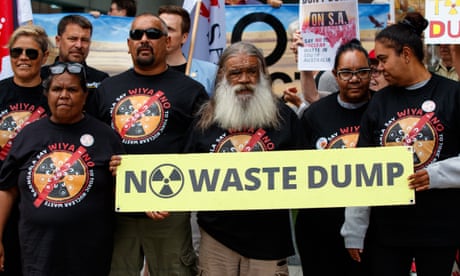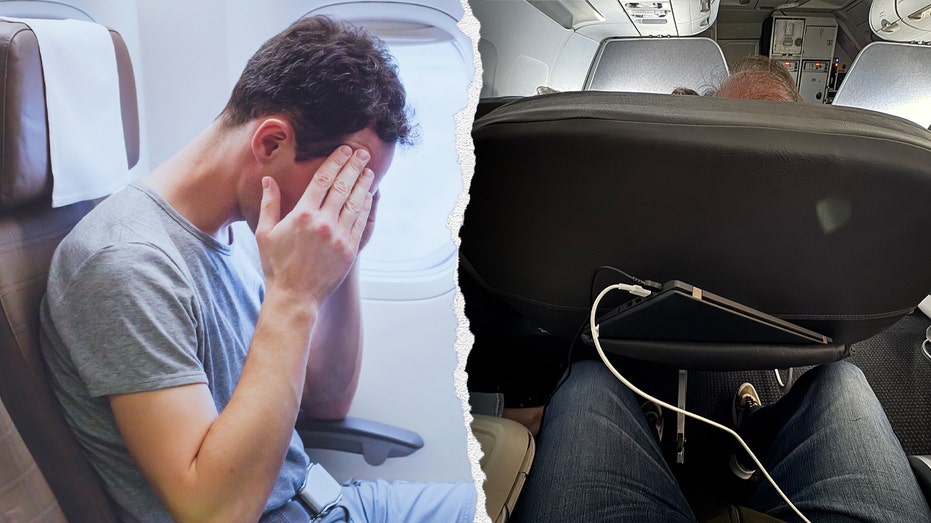- by foxnews
- 15 Nov 2024
Spectre of Maralinga hangs over Aukus nuclear waste for Indigenous communities
Spectre of Maralinga hangs over Aukus nuclear waste for Indigenous communities
- by theguardian
- 19 Mar 2023
- in news

Behind all the pomp of the Aukus submarine deal in San Diego, there was a detail that could prove a much bigger obstacle than even the massive USS Missouri moored near the three leaders. Under the agreement, Australia will be responsible for storing high-level nuclear waste from the decommissioned reactors.
And that is no easy feat. The US and UK naval reactors that will power both the Virginia class subs and the future SSN-Aukus boats are fuelled by highly enriched uranium-235.
Once removed and decommissioned, any spent fuel from naval reactors is usually reprocessed to extract usable nuclear fuel for civilian generation and the remaining radioactive waste concentrated. The Australian government has promised not to reprocess spent fuel, which means it will likely be sent offshore.
As some experts have pointed out, Australia has not even found a permanent site to store low-level nuclear waste, let alone highly radioactive waste.
But that is not enough to satisfy many Indigenous communities who fear the prospect of high-level nuclear waste dumps on traditional lands and for whom the spectre of British nuclear testing in the 1950s and 60s still looms large.
The Barngarla Determination Aboriginal Corporation chair, Jason Bilney, said the Barngarla people were not consulted, oppose the plan and have been in a legal battle with the federal government against the proposal.
Bilney said many traditional owners in the region had a deep distrust and fear of defence testing and nuclear waste after the nuclear weapons testing conducted by the UK in Maralinga in the 1950s and 1960s.
The tests caused many of the local Anangu Pitjantjatjara people to suffer from radioactive illnesses, with elders and family sickened and the land contaminated.
Bilney said his grandfather, who was from the Maralinga area, always remembered the trauma and the fear, which has continued through the generations.
Bilney said while the bomb testing was not the same as storage of high-powered uranium rods, that fear remains.
He said there was a real concern that storage of nuclear waste on their traditional lands and any restrictions on access could harm the cultural and spiritual knowledge that had been passed down for thousands of generations.
One possible location could be a defence site within the Woomera region, an area spanning 122,000 sq km about 450km north-west of Adelaide. The area has long been used for nuclear testing and as a military base.
The Woomera prohibited area takes in the traditional lands of six Aboriginal groups: the Maralinga Tjarutja and Anangu Pitjantjatjara Yunkunytjatjara, as well as the Antakirinja Matu-Yankunytjatjara, Arabana and Kokatha.
Kokatha traditional owner and senior lawman Andrew Starkey said their traditional lands took in huge swathes from Ceduna to Woomera but that is not recognised by native title.
He said he is strongly against any proposed nuclear waste storage facility in any defence site in his traditional homelands.
He said there are still defence testing sites in the remote desert, with unexploded ordinances, rockets and materials dating back decades, and as recently as 2021 an unexploded rocket was found near Lake Hart, a culturally significant site.
The federal government has been contacted for response.
- by foxnews
- descember 09, 2016
Airline passenger shares photo of 'reclined' seat debacle: 'Dude is in my lap'
A passenger paid for a first-class ticket on an American Airlines flight, but the seat in front of him trapped him in his chair, which led to the airline posting a public apology on X.
read more


